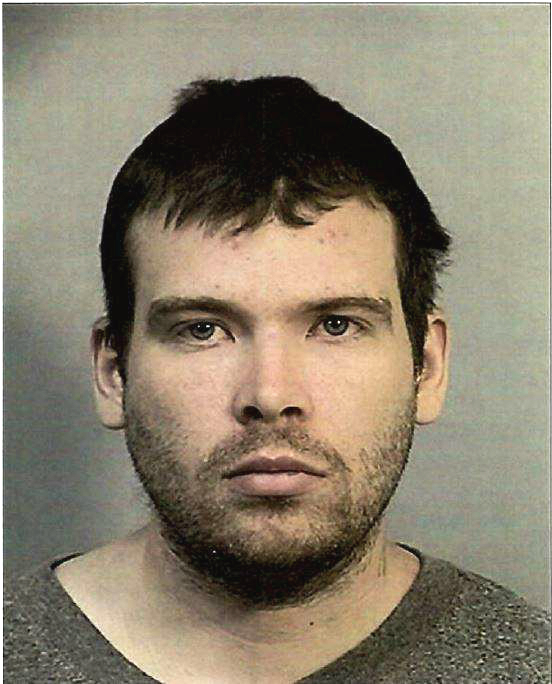KRON4’s Amy Larson is in court daily to bring you updates on the trial of Nia Wilson‘s killer. Find all her stories here.
OAKLAND, Calif. (KRON) – Before Alameda County Deputy District Attorney Butch Ford opened the courtroom door for Nia Wilson‘s family and friends to enter, he had the group pause.
Wilson’s killer was already inside the courtroom, waiting stoically on the stand to testify in his own defense. John Cowell is schizophrenic, so many wondered Tuesday how he would explain what was going through his mind when he stabbed two women whom he had never met before on a BART train.
Ford told Wilson’s supporters that they would likely think most of what Cowell had to say was “B.S.” Even so, he instructed the group to remain quiet.
“Give him his day in court, and the same patience we gave Tashiya and Letifa yesterday,” Ford told Wilson’s supporters.
Ford was referencing Wilson’s sisters who were riding with her on a BART train home when they were followed by Cowell from the Concord to MacArthur stations. The sisters sobbed during their testimony Monday, re-living the day that a stranger slashed their younger sister’s throat.
As Cowell took the stand Tuesday, he spoke out for the first time about July 22, 2018. His defense attorney, Christina Moore, called on Cowell as her first witness.

Moore began by asking Cowell about the first time he realized that he was mentally ill. Cowell said he could not remember, but it happened sometime after his 18th birthday. He was diagnosed schizo-affective disorder, bipolar disorder, and depression.
Cowell said he knows hears a voices in his head that are not real. Sometimes the voice is “looking for fake skin. Looking for a lot of sex. Paying for prostitution,” he said.
Cowell then began to talk about aliens putting “fake skin” on people and “alien technology” in his ear.
Moore redirected her questioning to talk about Cowell’s time spent in state mental hospitals, asking, “Have you ever been in a locked psychiatric hospital?”
“Yes,” Cowell replied.
Moore asked how many times he had been arrested by police and held on a “5150,” meaning, an involuntary psychiatric hold.
“I can’t remember. A lot,” Cowell said.

Cowell said he is not currently taking any medication, despite staff at Santa Rita Jail in Dublin offering it to him.
“I don’t take the medication anymore. It’s expired,” he said.
Moore asked, “Is that the only reason?”
Cowell replied, “Yes.”
It’s unclear whether he was taking medication leading up to the attack because, according to Cowell, he can’t remember long periods of time during the summer of 2018.
Just four days before he attacked Wilson, Cowell went to a hospital and told doctors that he wasn’t taking his medication because it was “poison.” Cowell was using heroin and methamphetamine almost daily, Ford said.
In the summer of 2018, Cowell was homeless and jobless. He had recently been released from Atascadero state mental hospital.
“What would you spend your days doing?” Moore asked Cowell.
“I don’t remember,” Cowell answered.

Moore attempted to re-construct a timeline of events during the two months between when Cowell was released from Atascadero, and when he attacked Wilson. Cowell and his defense attorney, however, had a tough time talking about time.
Cowell said he doesn’t remember how long he was locked in Atascadero. He heard voices during his few weeks of freedom, but he said he doesn’t remember what the voices were telling him. Moore handed Cowell medical paperwork with dates to help him remember, but he said he didn’t understand the paperwork. Cowell frequently sought medical treatment at hospitals, including the day before the homicide.
Moore then asked Cowell about the day he killed Nia Wilson.
“Do you remember riding at the Concord BART station?” she asked.
“Yes,” Cowell said.
“Where were you going?” she said.
“San Leandro Hayward,” he replied. “I was being threatened by three black females working together, threatening to assault my grandmother.”
“How were they communicating with you,” Moore asked.
“Over the radio,” Cowell said.
“They were standing over me, would not walk away from me, staring me down. They selected seats across from me. They don’t have a permit to stand over me. I wasn’t responsible for the three females’ behavior. They had kidnapped my grandmother. I love my family. It’s not illegal to aid, save, or rescue your family,” Cowell said.
“The fake skin suits. Aliens will put fake skin on somebody,” he said.
Moore asked Cowell if Nia Wilson and her sisters were aliens.
“Yes,” he said.
“They said they were going to attack my grandmother. I stabbed the females because they would not give my grandmother back,” Cowell said.
Cowell testified that he ran from the platform and alerted police.
“How did you feel?” Moore asked.
“I don’t remember,” Cowell said.
Moore said she had no further questions, and prosecutor Ford was able to begin his cross-examination.
Ford first questioned Cowell about anti-social personality disorder. Ford said symptoms of the disorder include a disregard for the safety of himself and others. Ford also focused on evidence that, according to Ford, demonstrated Cowell used his mental illness to get things that he wanted: prescription drugs, meals, places to sleep at night, and getting his own cell.
“Most of the time, you would get 5150’d because you just wanted a place to stay,” Ford told Cowell.
Cowell replied, “I don’t remember.”
Ford told Cowell, “In your mental health treatment, you never mentioned aliens before. You never mentioned fake skin before.”
Cowell raised his voice and said, “I was aiding a family member. I stabbed both of the females who were in a gang. That’s not guilty.”
Cowell repeatedly declared himself as “not guilty.”
“Did you stab them because they were black females?” Ford asked Cowell.
Cowell answered first with a rambling statement, then he said, “All three were gang members. I was saving my family.”
One of the biggest questions surrounding the death of Nia Wilson has always been whether she was attacked because she was a black.
Hundreds marched in the streets of Oakland in the wake of her death, but the Alameda County District Attorney decided that Cowell would not be charged with a hate crime, citing lack of evidence.
While testifying, Cowell brought up an incident that happened one week before the homicide. He said a black woman punched him “in the face.” And on the same night of the homicide, Cowell caught a city bus. While on the bus, Cowell confronted a black woman and called her a racial slur, Ford said.
Cowell became increasingly agitated with Ford’s cross-examination.
” I don’t appreciate you talking to me like that. You’re beefing with me right now. Two wrongs don’t make a right,” Cowell told Ford.
The judge called for a recess and everyone in the gallery was ordered by deputies to leave the courtroom.
When the trial resumed, Cowell continued to verbally spar with Ford.
“You’re being rude. I can’t help you out. You got the majority of questions done without being rude. I’m telling you no. I’m not going to do anything for you now,” Cowell said.
Ford told Cowell, “You’re putting on a show, aren’t you? You don’t like my questions?”
“No. You’re being disrespectful,” Cowell told Ford.
Judge Allan Hymer ended the day’s proceedings, and said that the trial would resume on Thursday morning.
KRON4 asked the Alameda County Public Defender’s Office if Cowell would return to testify Thursday. A spokesperson said Cowell is expected to return.
Full coverage of the Nia Wilson murder trial:
- Contra Costa County vaccinates hundreds at COVID-19 walk-in clinics
- Appeal filed for man convicted of murdering Nia Wilson
- Man who killed Nia Wilson at Oakland BART station sentenced to life in prison
- Nia Wilson’s killer slated to be sentenced after COVID-19 closed Oakland courthouse
- Judge finds John Lee Cowell was sane when he killed Nia Wilson